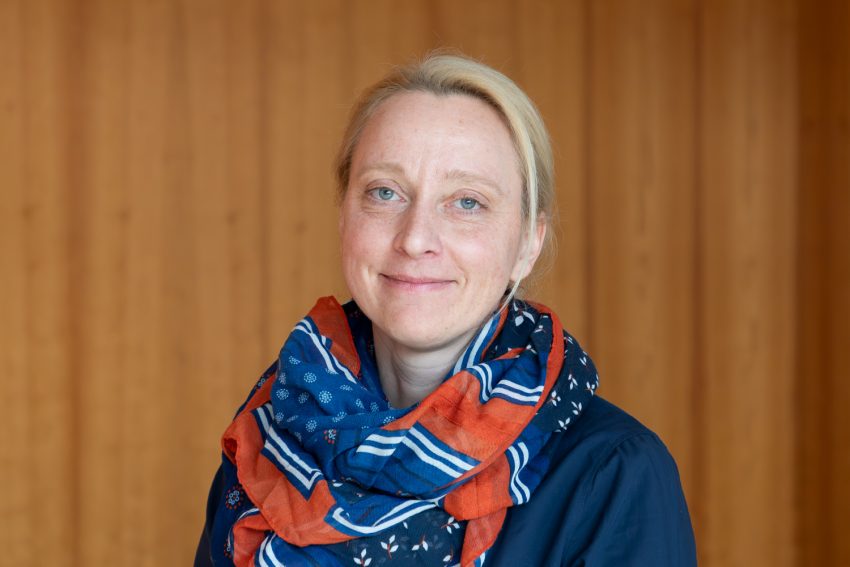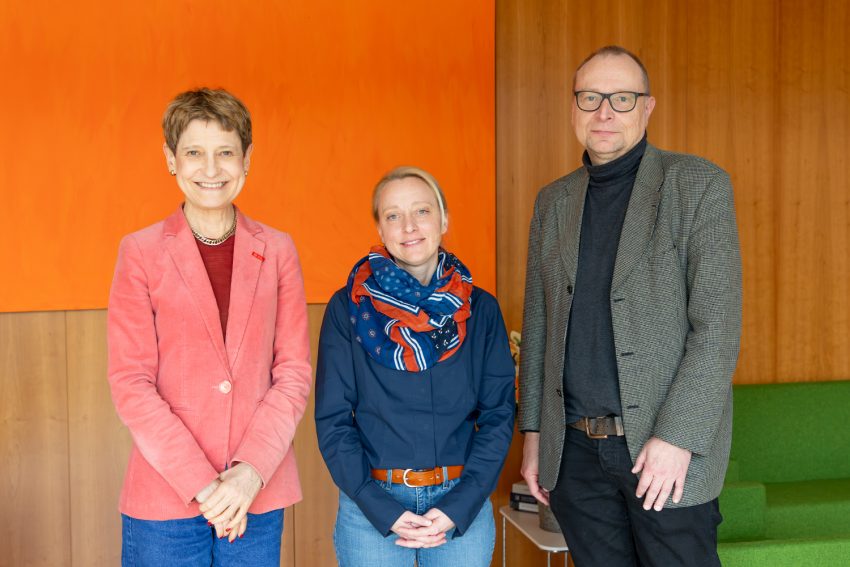Rethinking Language Education Katharina Kellermann is the new Professor of German Language Didactics
Language is more than just communication – it determines our educational success and our participation in society. But how do learners develop complex linguistic structures? Katharina Kellermann, the new Professor of German Language Didactics, is researching how language acquisition and the development of linguistic skills can be specifically promoted. In an interview, she talks about the opportunities she sees for collaboration at TU Braunschweig, her research priorities and what her working day is like.

Katharina Kellermann is the new Professor of German Language Didactics. Photo credits: Kristina Rottig/TU Braunschweig
Why did you choose TU Braunschweig?
I was introduced to TU Braunschweig during my doctoral studies and was able to gain my first experience as a lecturer in language didactics. I was particularly impressed by the wide range of opportunities offered by digitalisation and the high level of accessibility for teachers and students. I find the connection to a technical university particularly exciting because it enables interdisciplinary cooperation with different departments.
This collaboration opens up innovative approaches to language didactic research, for example in the area of digital learning technologies, adaptive teaching formats or automated language processing. The combination of linguistic research and technological developments offers great potential for practical and forward-looking teaching and research projects.
What exactly do you deal with in your research? How would you explain your work to someone unfamiliar with the subject?
I research the development of literacy and the promotion of specific linguistic phenomena. I am currently working on linguistic structures that fall into the register of academic language – for instance, prenominal expansion. An example of this would be: ‘the multilingual digital learning platform optimised by modern AI-supported language analysis methods’. I am interested in when and in what contexts students use and understand such complex constructions. It is important for me to start from the learners’ linguistic ideas and concepts in order to develop targeted support measures.

President Angela Ittel with Professor Katharina Kellermann and Professor Eckart Voigts, Vice-Dean of the Faculty of Humanities and Education. Photo credit: Kristina Rottig/TU Braunschweig
What are the main research areas and projects you will be working on at TU Braunschweig?
My research focuses on language education and development, with particular emphasis on the didactics of grammar and pragmatics, the latter focusing on the teaching of linguistic agency in specific communicative situations. A central concern is to understand how linguistic structures can be used, acquired and taught in an educational context. In the area of grammar didactics, I examine how complex linguistic structures are learned and used. I work in an interdisciplinary way with linguistics and psycholinguistics to make empirical findings useful for teaching. Pragmatics is concerned with how language is used appropriately in different social and educational contexts. The aim is to use collaborations and conferences to anchor pragmatic skills more firmly in school education.
What motivated you to do research in this area?
During my teacher training and work in different types of schools, from primary to secondary schools, I noticed that certain linguistic phenomena caused difficulties for all students, regardless of their educational background. This insight sparked my interest in research: I wanted to understand more precisely which linguistic challenges are particularly central and how they can be specifically supported. My aim is to translate research findings into practice so that students can be given the best possible support in developing their language skills. I am excited to see to what extent this goal can be achieved.
How would you describe your typical workday in three keywords?
Creative, versatile and practical!
